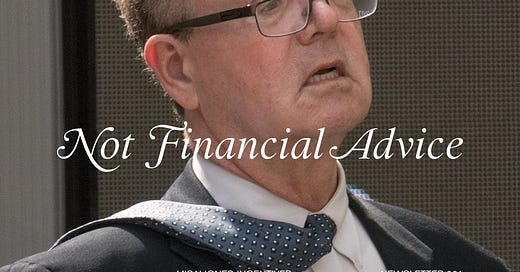Supply and Demand Problem in Healthcare
Medicine has always had a broken business model. The more often a patient is sick, the more a doctor is in demand. With a limited supply of trained doctors, the higher their value when demand increases. However, when a doctor does offer effective treatment or prevents future sickness, the demand decreases, as does their value.
A physician in Ancient Greece saw the misaligned incentives and, as legend has it, proposed the Hippocratic Oath. In this document he outlines a surprising number of moral directives: to “do no harm or injustice to” patients, to “keep pure and holy both my life and my art,” and to practice doctor-patient confidentiality. Broadly understood centuries later as common sense, this oath survives in the zeitgeist today because it is counter-intuitive in late capitalism. It denies one the ability to financially appraise human life and make economic decisions with such calculations. It places the health and continuation of human life as the singular consideration when administering care.
Unsurprisingly, our society’s greed has corrupted the once trusted medical system and, at least in the U.S., has constructed barriers to care that place profits over people in the all-too quantitative analyses of corporate medicine.
With all its problems, at least there is a code of ethics—an oath of allegiance. Other industries lack such clarity.
Fiduciary Duties and Misaligned Incentives
The allegiances of centralized financial institutions (i.e. Banks, Lenders, Funds, and Traders) are not with the end-consumer. Surprisingly, they are the same as any publicly traded institution: increase immediate value for the shareholders. If this is not obvious to you (the end consumer) it is because the marketing efforts of these institutions are not engaged in truth-telling, but instead at increasing participation, and thereby profits, and thereby shareholder value.
I want to be clear here: this is not speculation or opinion. The executives at these companies have a legal responsibility to increase value to the shareholder. In legalese, it is called a fiduciary duty, and not serving the interests of the shareholders (even when violating customer’s interests) is illegal. The incentives are misaligned.
In other words, financial services are not meant to serve you. You are the product, the wealth-generating asset. No better than a barrel of oil or a bale of hay. The mission statements and brand promises these institutions showcase on their websites and billboards are in direct contrast to their fiduciary duty.
This newsletter aims to further interrogate the incentives of an institutionalized economy and how these incentives might inform one’s personal financial choices. It will explore a decentralized future, transitioning trust from institutions, and how capitalism can be re-imagined into a positive-sum game.
If this newsletter has added any value to you, please consider sharing it with a friend.
Helpful Links
Vitalik Buterin in conversation with Naval Ravikant Two of the most level-headed people in the future of finance, the founder of Ethereum and founder of Angelist talk about what’s next for cryptocurrency and the blockchain. Requires a basic understanding of crypto-currency, but well worth a listen.
Margin Call (2011) This movie captured my attention a few years ago when clips from the film were continually suggested in my YouTube recommendations. This week a favorite clip resurfaced and reminded me how much I loved the film and how clearly it illustrators the fiduciary duty I mentioned in the newsletter. Watch the clip here.
In addition to a weekly public newsletter, I will write a weekly subscriber-only newsletter that is only available for paid supporters. This special edition features more specific, practical insights that hopefully inspire more confidence when building your financial future. Please consider supporting for 5 USD a month or 50 USD a year.





